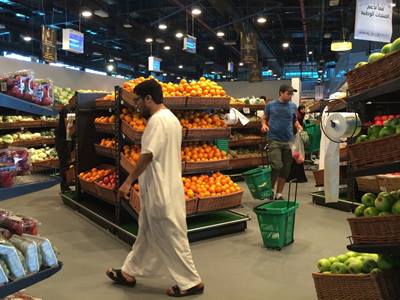ID :
656323
Sat, 03/25/2023 - 16:01
Auther :
Shortlink :
https://www.oananews.org//node/656323
The shortlink copeid
Spending, Consumption Rates In Ramadan... Strong Driver For Markets, Production

Doha, March 25 (QNA) - Spending and consumption rates double annually in Ramadan, and as a result, local markets flourish as the holy month moves its cycle and accelerates its growth processes, according to economy experts. Speaking to QNA about the repercussions of the holy month on the national economy, they unanimously agreed that Ramadan is a catalyst for its acceleration, and the increased demand for commodities is a motive for the productive forces. The consumption pattern in Ramadan has become a source of strength for the local economy, and a driver for the market, in which it finds sufficient opportunity to move inventory before the advent of the holy month, for businesses to make substantial income. According to economist Fawaz Al Hajri, purchasing habits in Ramadan usually stimulate the performance of eight main sectors, directly related to the occasion, foremost of which are food products, livestock, textiles and clothing, gifts, sweets and nuts, hotels, restaurants, and beauty salons, as they enjoy higher demand from consumers. These sectors collectively benefit from the season, and their sales double during Ramadan, which reflects positively on them, he said. As for the local economy being affected by the policy of reducing working hours, Al Hajri ruled that out, saying: "Fasting and its duration do not affect productivity. On the contrary, the holy month is a catalyst for all its operations." He cited the experience of the State of Qatar during the COVID-19 pandemic, and during its hosting of the FIFA World Cup Qatar 2022, as manpower and working hours were reduced by up to 80 percent, and production processes were not affected by that. The time reduction does not harm the employee's productivity, whether it is during Ramadan or at other times. Focus and specialization are the decisive factors, not time as some think, he said. Productivity is one of the economic drivers, but it is not the main engine, he said emphasizing the necessity of sales outlets, and channels as well as the demand on these products. Al Hajri believes that Ramadan has a positive impact on the local economy, through the improvement of the "consumer' purchases index, the increase in the production of food sector, which improves the operations of the transport sector, retail markets and the entire industrial sector. Economists point out the difference in the impact of the holy month on the economy of each country based on the structure of its existing economical structure. Businessman Hassan Al Hakim said that shopping movement is not the only one that thrives in Ramadan, as the flavors of the month are directly reflected in all the economies of Arab and Islamic countries, expecting the local market to continue its momentum and double its gains in the current Ramadan, as a result of the record growth of the movement. The competition and offers presented by companies to attract shoppers to buy their products may push those businesses to reduce their prices, especially in the second half of Ramadan. Increasing demand for goods and services accelerates economic growth and provides new job opportunities, and this will be in the interest of companies, in terms of higher revenues, as a result of increased sales, which will generate more profits, he added. He pointed to the achievements of remote work, during the previous period, in filling any shortcomings that might hinder the progress of production processes and their chains. "In addition, the majority of projects are managed electronically, including the conclusion of contracts, commercial deals. This is no longer restricted to working hours and working days, and have become more flexible and dynamic than before, he stressed. (QNA)





